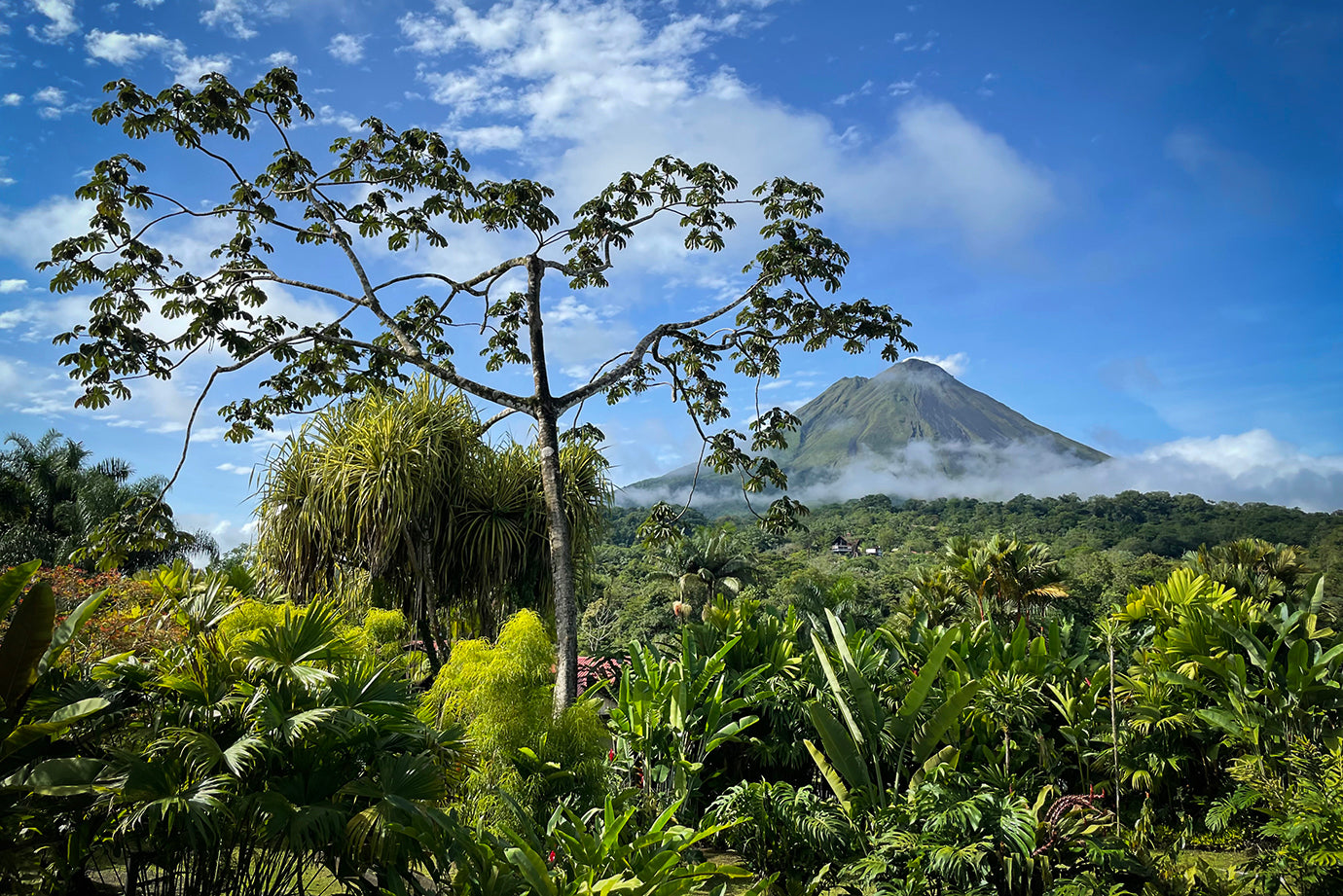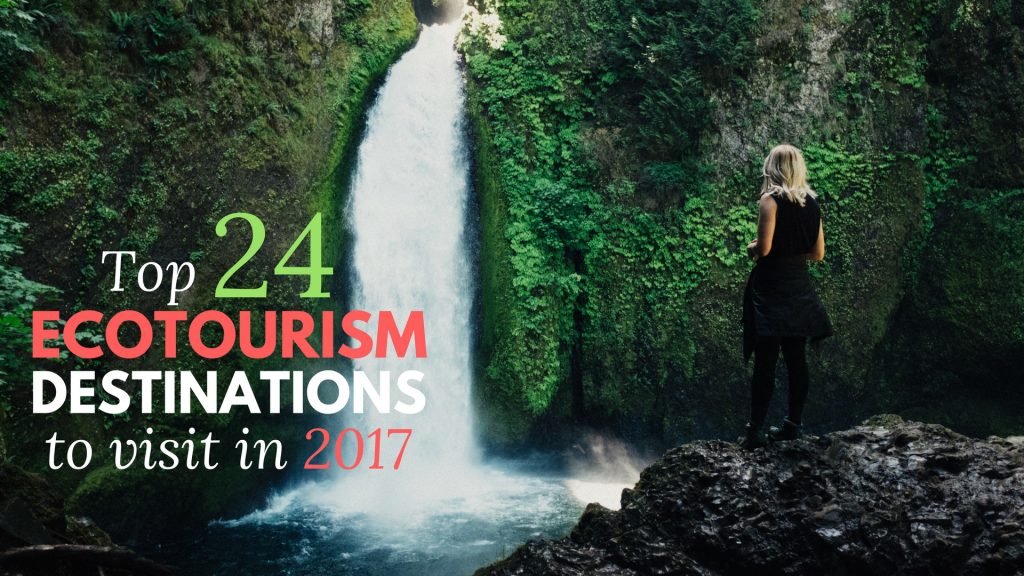Top Ecotourism Countries: Unveiling Natures Pristine Treasures
Delve into the world of top ecotourism countries, where pristine ecosystems, captivating wildlife, and sustainable practices converge to offer an unforgettable journey that harmonizes nature and tourism.
Embark on a voyage that showcases the unparalleled beauty of our planet, while fostering conservation efforts and empowering local communities.
Global Ecotourism Market Overview

Ecotourism has gained immense popularity in recent years as travelers seek authentic and sustainable experiences. The global ecotourism market is thriving, with a projected value of USD 343.6 billion by 2028, exhibiting a CAGR of 9.4% from 2022 to 2028.
Key factors driving the growth of ecotourism include increasing environmental awareness, rising disposable incomes, and the desire for unique and transformative travel experiences. Governments and organizations worldwide are promoting ecotourism to support sustainable development and conservation efforts.
Market Size and Growth, Top ecotourism countries
- The global ecotourism market was valued at USD 201.1 billion in 2022.
- It is projected to reach USD 343.6 billion by 2028, growing at a CAGR of 9.4% from 2022 to 2028.
Key Trends
- Increasing demand for immersive and authentic travel experiences.
- Growing popularity of nature-based activities such as wildlife safaris, hiking, and kayaking.
- Emphasis on sustainability and conservation practices by tour operators and travelers.
- Adoption of eco-friendly technologies and practices to minimize environmental impact.
- Government initiatives and regulations to promote responsible ecotourism.
Top Ecotourism Destinations
Ecotourism, a form of responsible travel that focuses on conserving the environment and supporting sustainable practices, has gained popularity worldwide. Various countries have emerged as top destinations for ecotourism, offering unique ecosystems, protected areas, and a commitment to sustainability.
Country Rankings
The following table presents a ranking of top ecotourism countries based on criteria such as biodiversity, protected areas, and sustainable tourism practices:
| Rank | Country | Unique Ecosystems | Protected Areas | Sustainable Tourism Practices |
|---|---|---|---|---|
| 1 | Costa Rica | Rainforests, cloud forests, mangroves, volcanoes | 25% of land area protected | Strict environmental regulations, certification programs for tour operators |
| 2 | Ecuador | Amazon rainforest, Andes Mountains, Galapagos Islands | 18% of land area protected | Community-based tourism initiatives, carbon offset programs |
| 3 | Peru | Amazon rainforest, Andes Mountains, Machu Picchu | 13% of land area protected | Government support for ecotourism, certification programs for tour operators |
| 4 | Kenya | Savannas, wildlife reserves, Mount Kilimanjaro | 7% of land area protected | Conservation efforts, community-based tourism projects |
These countries offer diverse ecotourism experiences, from wildlife safaris and rainforest adventures to cultural immersion and sustainable agriculture practices.
Ecotourism Activities and Experiences
Ecotourism offers a wide range of activities and experiences that connect travelers with nature and local cultures. These activities can be categorized into four main types: nature-based, adventure, wildlife, and cultural immersion.
Nature-based activities focus on exploring natural environments, such as hiking, birdwatching, and kayaking. Adventure activities provide opportunities for adrenaline-pumping experiences, such as zip-lining, white-water rafting, and mountain climbing. Wildlife activities allow travelers to observe and interact with animals in their natural habitats, such as safaris, whale watching, and snorkeling.
Cultural immersion activities provide insights into local traditions, customs, and lifestyles, such as visiting indigenous communities, attending festivals, and learning traditional crafts.
Nature-Based Activities
- Hiking through rainforests, mountains, and deserts
- Birdwatching in diverse ecosystems
- Kayaking through mangroves, rivers, and lakes
- Snorkeling and diving in coral reefs
Adventure Activities
- Zip-lining through canopies
- White-water rafting on roaring rivers
- Mountain climbing to breathtaking summits
- Caving in subterranean wonders
Wildlife Activities
- Safaris in national parks
- Whale watching in coastal waters
- Snorkeling with marine creatures
- Birdwatching in diverse habitats
Cultural Immersion Activities
- Visiting indigenous communities
- Attending local festivals
- Learning traditional crafts
- Experiencing local cuisine
Benefits of Ecotourism

Ecotourism offers numerous environmental, social, and economic benefits, contributing to sustainable development and preserving natural and cultural heritage.Ecotourism plays a vital role in biodiversity conservation by protecting habitats and wildlife. It raises awareness about the importance of biodiversity and encourages local communities to conserve their natural resources.
For instance, in Costa Rica, ecotourism has contributed to the protection of rainforests, leading to increased biodiversity and wildlife populations.Ecotourism also supports community development by providing income opportunities for local people. It empowers communities to take ownership of their resources and participate in decision-making processes related to tourism development.
For example, in Kenya, ecotourism has created employment opportunities for local communities, reducing poverty and improving living standards.Furthermore, ecotourism promotes sustainable livelihoods by encouraging businesses to adopt environmentally friendly practices. It supports local businesses that offer eco-friendly products and services, such as organic farming and cultural tourism.
For instance, in the Galapagos Islands, ecotourism has led to the development of sustainable fishing practices, preserving marine ecosystems and providing economic benefits to local communities.
Challenges and Opportunities in Ecotourism

Ecotourism offers a plethora of benefits, but it also faces challenges that must be addressed to ensure its long-term sustainability. Understanding these challenges and leveraging opportunities can lead to the growth and innovation of the ecotourism sector.
Overtourism
Overtourism, the excessive number of tourists visiting a destination, can lead to environmental degradation, social and cultural disruption, and a diminished experience for visitors. It is essential to manage tourism flows and develop strategies to minimize its negative impacts.
Greenwashing
Greenwashing refers to deceptive marketing practices that portray businesses as environmentally friendly when they are not. This can erode trust and make it difficult for consumers to make informed choices. Establishing clear standards and regulations can help combat greenwashing and ensure transparency.
Infrastructure Development
Infrastructure development, such as roads and resorts, can facilitate tourism but also pose environmental risks. Careful planning and environmental impact assessments are crucial to minimize the negative effects of infrastructure on ecosystems and local communities.
Opportunities for Sustainable Growth and Innovation
Despite the challenges, ecotourism offers opportunities for sustainable growth and innovation. By embracing emerging trends and technologies, the sector can enhance experiences and promote conservation.
Emerging Trends and Technologies
Virtual reality (VR) and augmented reality (AR) can provide immersive experiences that educate visitors and reduce the environmental impact of travel. Big data analytics can optimize tourism operations and identify areas for improvement. Mobile apps can facilitate bookings, provide information, and promote responsible behavior.
Conclusion

As the tapestry of ecotourism continues to unfold, we are reminded of the intricate connection between nature and human well-being. By embracing responsible travel practices, we not only safeguard the wonders of our planet but also create a legacy for future generations to cherish.
Essential FAQs: Top Ecotourism Countries
What are the key benefits of ecotourism?
Ecotourism contributes to biodiversity conservation, supports sustainable livelihoods for local communities, and fosters environmental education.
What are some common challenges faced by ecotourism destinations?
Overtourism, greenwashing, and infrastructure development pose challenges to the sustainability of ecotourism destinations.
How can we promote responsible ecotourism practices?
Choosing certified operators, respecting local customs, and minimizing environmental impact are crucial for responsible ecotourism.

